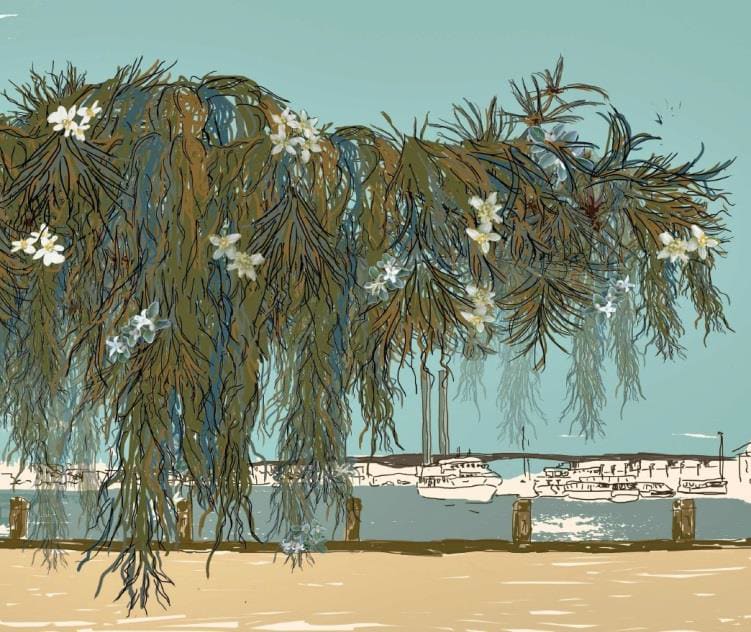RMIT students propose pop-up activation for Docklands
Always a point of conjecture amongst many a Melburnian, docklands has become the area of interest for a group of students from RMIT University’s Master of Arts (Art in Public Space) program who have launched an eBook that showcases visions that were conceived and designed to activate open spaces around docklands' Harbour Esplanade spine.
The students spent weeks researching the design, construction and formation of docklands and analysing the ways in which the public experienced and inhabited its public spaces. The research then informed the creation of a series of site-specific propositions for these public spaces.
Nine propositions feature in "A Proposition for the docklands", with visions striving to capture the quirky, the colourful and sublime elements of open space activation.
Public art 'propositions' vary from formal 'proposals' as they provide artists with the opportunity to imagine things that are not possible or have not been created.
The propositions varied from large-scale interactive and immersive installations, and roller coasters, to canopies of indigenous flora.
One proposition is the absence of domestic daily tasks being undertaken in docklands locations and wondering why we don’t see people cleaning their belongings, washing dishes in public spaces as we do in other cities around the world.
The RMIT public art students’ enthusiasm, research and creative propositions for the docklands reveal how vibrant Melbourne’s urban planning may become if artists collaborated with urban and town planners to develop and realize their visions for Melbourne.
Rebecca West, Urbis Director of Planning and 2014-2015 Future Focus Group participant
The students also launched their propositions as a series of postcards and led a group of 30 people on a walking tour of the docklands to showcase and explain their creative work earlier this month.
My personal favourites are propositions one and two, which are both interactive installations embedded into the pavement and which engage with the pedestrian and provide a kinetic quality to an otherwise static strip of pavement. Combined, the two ideas could add a sense of playfulness to the waterfront turning Habour Esplanade into a interactive playground for all ages.
Proposition one: Connecting to Disconnect > Disconnecting to Connect
Conceived by Molly Braddon, this proposition is intended to play with the idea of disconnection. During the day, the work is designed to interrupt the linear path of pedestrians.
Every time a foot falls one one section of the work another section in the distance becomes animated with flashes of light, movement and sound turning an otherwise sterile journey into an interactive game, that allows the pedestrian to engage with other pedestrians in the distance and influence their movement through the site based on their own.
At night when pedestrians become more sparse the installation mimics the movements of the day's earlier visual orchestra.
Proposition two: Coil
Shu Jie Jia's response to the site contextualises itself by tapping into the transport and shipping history associated with the site's former life. Dubbed 'Coil' the proposition manifests as an industrial arbour in the form of a coiled train line.
Embedded within the tracks are a series of LED screens illuminating the harbour at night and filling it with colour during the day. The screens will display abstract patterns of shipping containers moving along the arbour, referencing the movement of goods through docklands; connecting the pedestrian with the history of the site and providing a sense of protection from the elements.
The RMIT project was supported by leading independent property consultancy Urbis, in conjunction with Pop Up Melbourne, a Future Focus Group project. Future Focus Group is the Committee for Melbourne’s two year business leadership program.
The Pop Up Melbourne initiative brings people and places together to work with the private, public and not-for-profit sectors, activating spaces that may otherwise go unloved.
To download a copy of the "A Proposition for the docklands" ebook and view all nine propositions visit the Urbis website.
